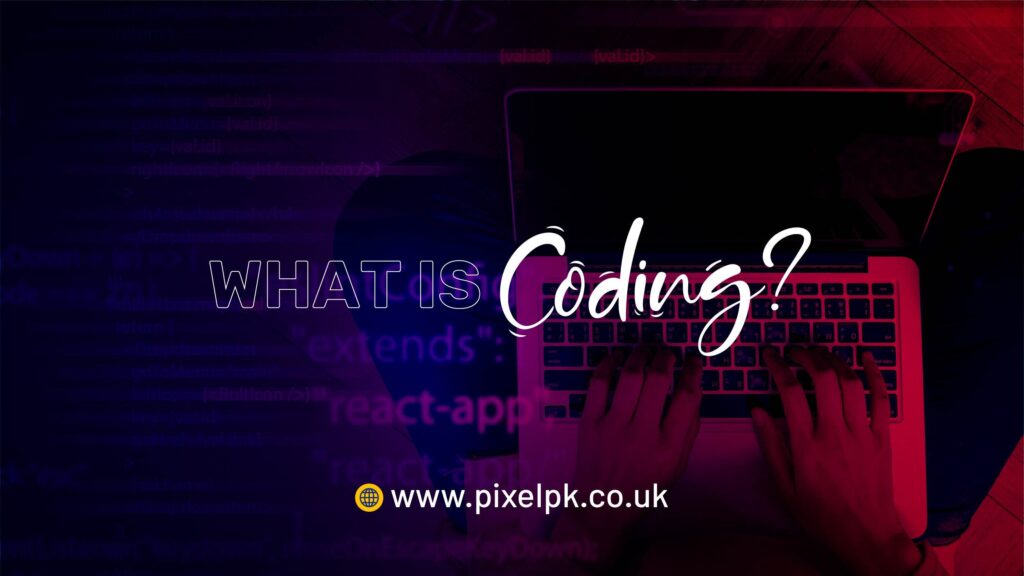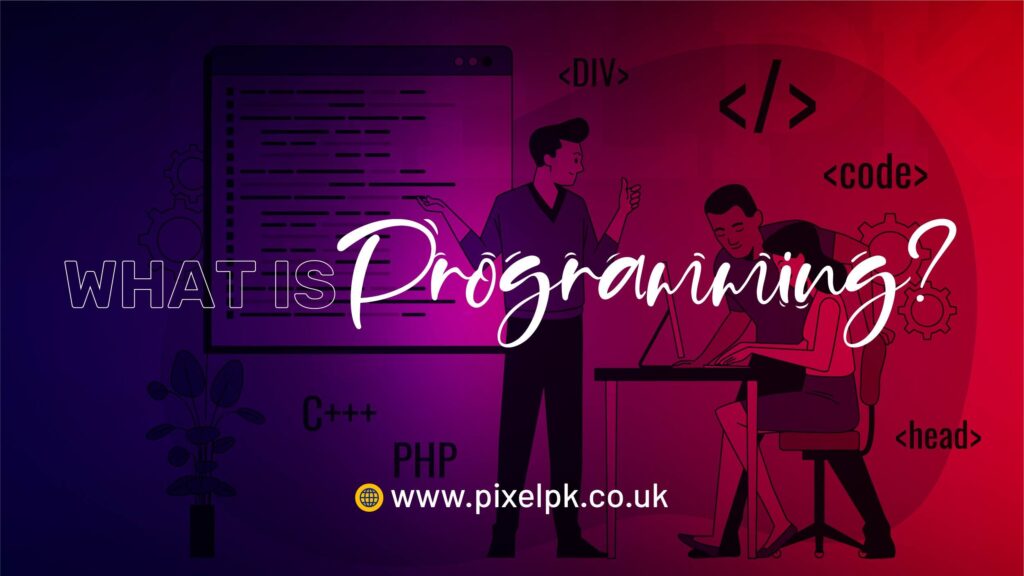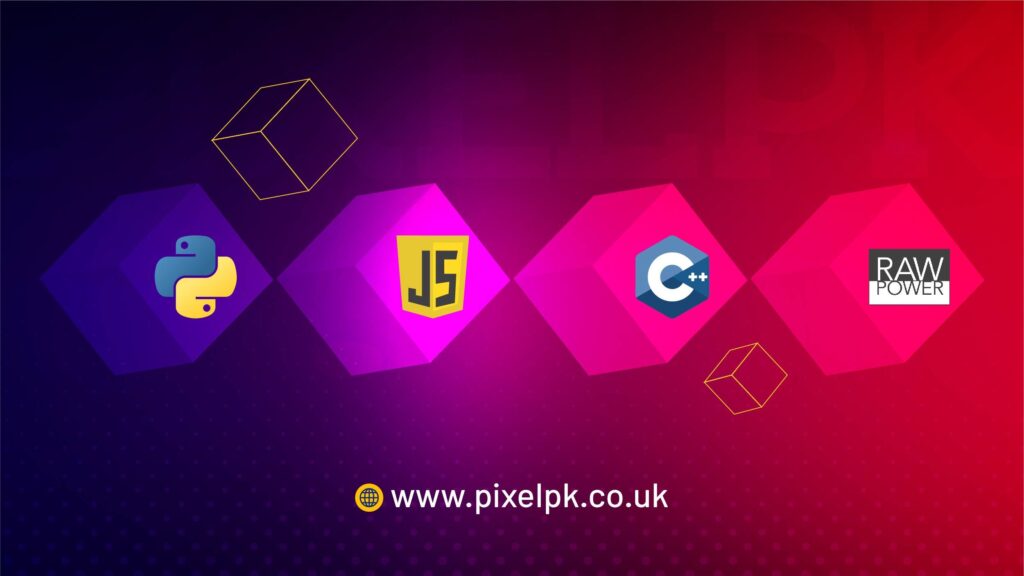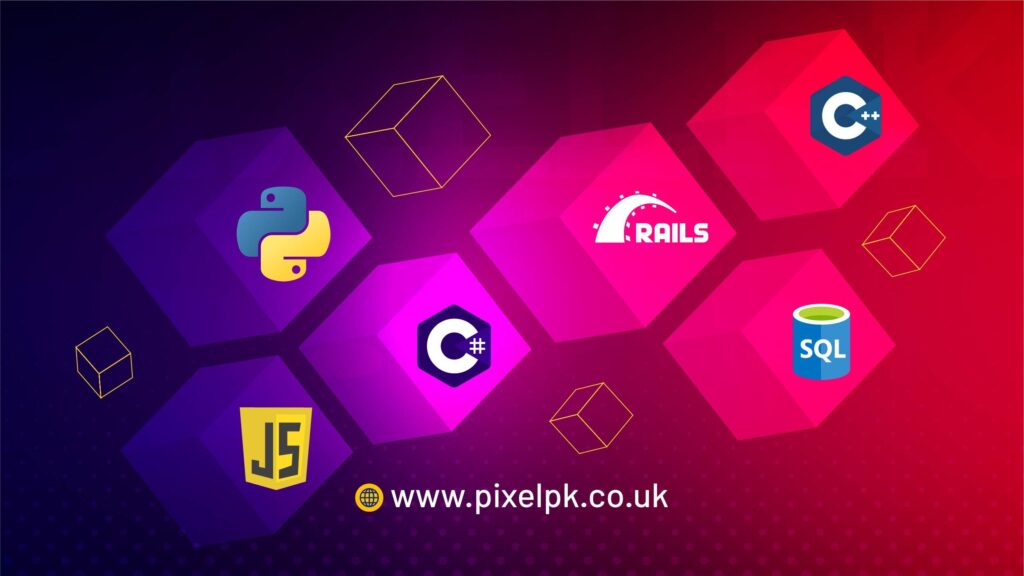The software development landscape often unwraps some of the terms that can be used interchangeably. One of these found is Coding and Programming.
For non tech people, these terms can be used in developing applications, programs, software, and websites. However, understanding the core, and minimal differences is wise to make the most of them.
If you have just started and stepped into the intricate net of technology, then understanding the actual difference between coding vs. programming is important. Not only this, but the borderline on which they both overlap is more significant.
This is why we have outlined some of the mandatory pointers that will assist you in understanding the coding and programming debate easily.
What is Coding?
If you have ever wondered, is coding a mystery? Then, you are so true. Computers, laptops, mobile, and tablets, all are machines that understand, speak, and process their own languages.

And they only understand the binary languages, which are ones, and zeroes. We, humans, are the chatterboxes of different languages.
So, how can we give them the command to act?
How can we let them process what we want them to do?
How can we build up a connection to smooth the processes?
That is where the magic of coding pops up!
Coding is a secret code that not only the computer understands but also makes processes accordingly.
And the ones that specialize in giving commands to computers and communicating with them are known as coders. They are like language diplomats. They use a middle-ground language to guide the computer through the step-by-step actions.
What is Programming?
As you have read some of the valuable content related to coding, now is the time to learn something great about Programming.

At its core, programming is like giving step-by-step instructions for computers to follow. It’s like giving a robot a to-do list, but you need to speak its language. And for this obviously, you need to learn how to code.
When you are doing programming, you jot down precise steps, telling the computer exactly what to do.
Need it to calculate something? Write a code.
Want a game character to jump? Code it.
The computer doesn’t guess; it needs to have your instructions, so it can follow!
But let us tell you another cool part. You can create almost anything with programming.
Apps on your phone? Coded.
Websites you surf? Coded.
Implement elements for a single selfie filter? Coded.
To become a programmer, you need some patience, logic, and a knack for problem-solving skills.
So, programming makes your computers perform a well-coordinated action based on your coded instructions.
Programming is creative, empowering, and most importantly, it’s the language that transforms your ideas digitally.
Coding Vs. Programming
But here is the plot twist when you come to know about Programming. You would definitely think is coding the same as programming.
Well, not exactly. Let us give you some fictional examples to grasp the context wisely.
Coding is like the translator at the United Nations, dealing with the mini details. Programming is the actual big boss plan. It’s not just about translating, it is about crafting the whole game plan.
Now, let’s talk about the skills needed for them. To be a code maestro, you need to know the rules of the language you’re translating to. It is like when you are speaking French, you know how to use the correct grammar.
For coding, you need to nail the syntax, grab onto the main keywords, and get the logic injected into the chosen language. That’s the real deal in the coding vs programming debate.
Are There Different Tools for Coding and Programming?
As Coding is like building with digital Lego blocks, that is why it surely needs some set of tools to perform and regulate the actions.
Here’s a quick sneak peek into the toolbox that assists a coder.
Text Editors:
These are your digital notebooks. Notepad, VS Code, and Sublime Text are popular ones. They help you write code with features like color-coding and auto-completion.
Integrated Development Environments (IDEs)
IDEs are like your coding command centers. Examples include Visual Studio, Eclipse, and PyCharm. IDEs pack everything, from editing, debugging, and testing, keeping it all in one place.
Version Control Systems
When it comes to version control, Git is the superhero. It tracks changes in your code, so you can time-travel back to fix mistakes. GitHub and Bitbucket are online backup fortresses for your code.
Command Line Interface (CLI)
The CLI acts like a coding ninja. It’s a text-based way to communicate with your computer, letting you perform tasks with lightning speed.
Web Browsers
Browsers like Chrome and Firefox are more than just for surfing. They come with built-in developer tools. They help you to tweak web page code.
Package Managers
NPM (Node Package Manager) and pip (for Python) are delivery services for code. They fetch and manage external libraries.
Debugging Tools:
When bugs invade your code, debugging tools like Chrome DevTools help you track them down and show them the exit door.
Containerization Tools:
Docker helps you out in the coding process. It lets you package your code and ensure it runs smoothly across different environments.
What Coding Language You Should Learn to Become a Best Coder?
Picking the right coding language is like choosing the right command for performing the right computer function.
Here is a quick guide to help you navigate the coding universe and become the best coder you can be!

Start with Python:
Python is very easy to learn, reads like plain English, and plays nicely with tons of applications. Whether you are into web development, data science, or artificial intelligence, Python’s got your back.
JavaScript for Website:
JavaScript is your go-to way when it comes to the building of websites. This brings life to web pages, making them dance and respond to user clicks.
Explore C++ for Raw Power:
If you want your website to be loaded freely, C++ should be your go-to stop. Be it video games, operating systems, and anything that needs to move at warp speed.
What are the Most Famous Programming Languages?
The world of programming involves different languages. Most of them stand out and shine, as they play the role of pillars of 75-80% for a programming industry of programming industry.

Let’s take a quick overview of some of the most famous ones that make the coding world easy!
Python:
Python is the go-to programming language. It is like a friendly neighbor who’s always ready to help. It is famous for its readability and versatility, From web development to artificial intelligence, Python’s got your back.
JavaScript:
JavaScript knows very well the intricacies of the web. It makes websites the best with the most interactive features. If you’ve ever clicked a button on a webpage, you’ve probably met JavaScript without even realizing it.
Java:
Java is a reliable programming language that is injected into everywhere from mobile apps to big enterprise systems. It’s known for its “write once, run anywhere” mantra. Java is making itself a go-to choice for developers globally.
C#:
C# acts like a backbone in the development game. It is like a cool kid and plays well with Windows applications. If you are into crafting desktop software or games, C# should be your go-to approach.
C++:
C++ empowers the systems that need raw speed. It’s the muscle behind video games, operating systems, and even some space missions. Where you read a word of performance, C++ comes!
Ruby:
Where you need simplicity and productivity in coding, Ruby is the programming language to go with. It is one of the favorite programming languages for web development. With the Ruby on Rails framework, building websites becomes very easy.
SQL:
SQL is the programming language that manages the databases behind the scenes. It’s not for writing for the applications, but it’s the go-to language for fetching, updating, and organizing data. If you love databases, SQL should be your go-to language.
FAQs: Let’s Answer Some Of Your Frequently Asked Questions!
People starting in the field of coding and programming have a lot of what, how, and why questions in their minds. But we have already got you covered.
Let’s answer some of the budding questions you might have in your mind.
What is the Relativity of Coding and Programming in the field of Software Development?
Coding is an important part of programming. It is the hands-on process of translating algorithms into a language a computer can understand.
Do Coding and Programming jobs have the same Skill Requirements?
Coding skills may focus on implementation, while programming skills have to do a lot of broader understanding of software development processes.
If you Learn Coding and not Programming, can you Become a good Developer?
Learning coding often starts with syntax and basic commands, but a comprehensive understanding of programming concepts enhances overall proficiency.
What is the Easiest Programming Language that you can Learn and Implement?
You can choose any language that you wish to learn but if you are a beginner then starting with Python is going to be the right choice for you because it is widely used and easy-to-understand.
What are the Best Websites if you want to Learn Coding and Programming?
There are many online websites offering courses including coding and programming. For example, Udemy, Codecademy, Khan Academy, etc.
What is the Future of Coding and Programming in Software Development?
Coding brings ideas to life, while programming ensures those ideas are developed, tested, and refined, driving innovation in the ever-evolving tech landscape.
Let’s Wrap Up:
In general, non-tech people might not be well informed about the coding vs. programming debate. They know that they may be used in an interchangeable manner.
But this article has highlighted some of the core differences that you must know if you are stepping into the world of technology, and wants to know more about it.
We hope that this never-ending debate has ben somehow understood, and we have assisted in providing you with valuable knowledge in this journey.




